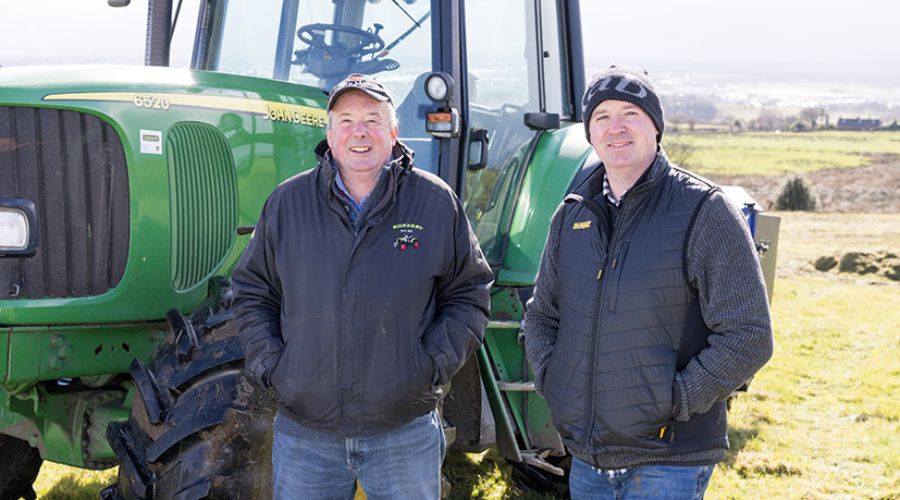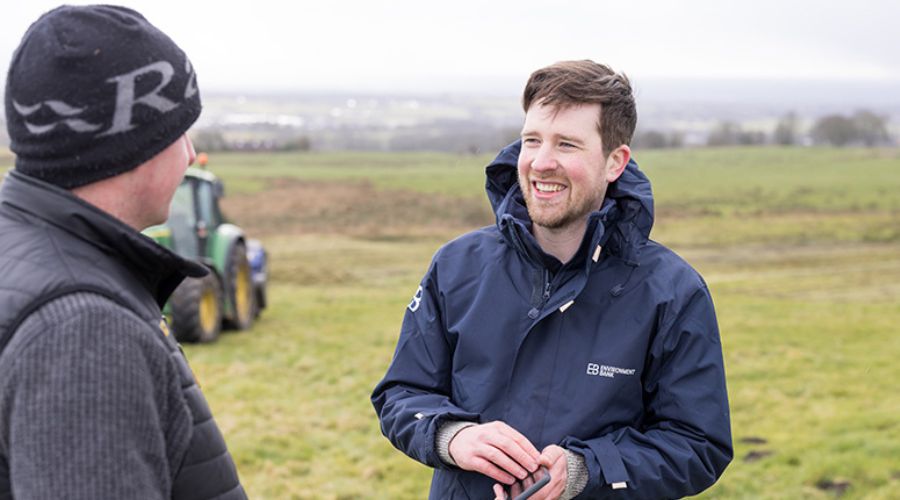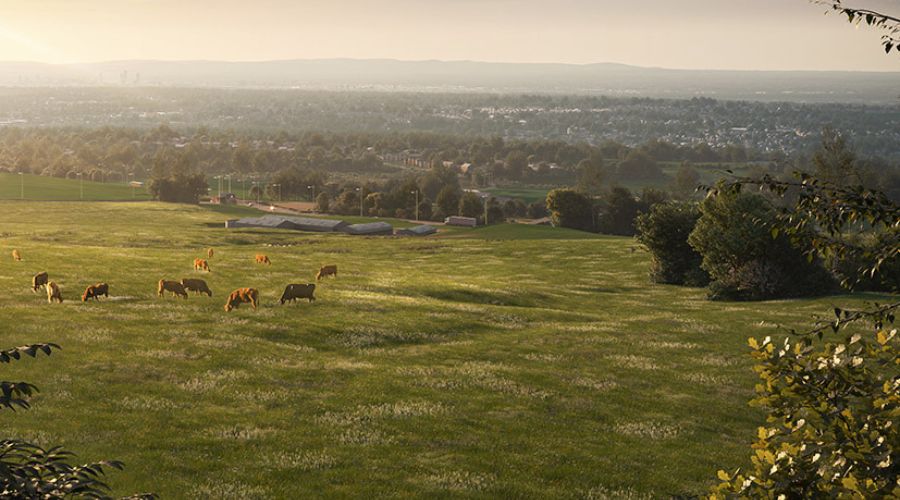Biodiversity – securing a future for the family farm
24th February 2025
Greater Manchester farmers Richard and John diversified through BNG when the farm was no longer financially viable.

Richard Pendlebury of Yate Fold Farm near Bolton, Greater Manchester, found making an income from his family farm no longer financially viable. He needed a new plan if he wanted the third-generational farm to continue profitably – and he found success by diversifying through biodiversity net gain (BNG).
Richard and his family are now part of a growing number of farmers integrating BNG Habitat Banks into their farm businesses. New habitats are being created across a 120-acre parcel of Yate Fold Farm – including meadows, grasslands, fen, ponds, and more – increasing biodiversity and securing a future for Richard’s family farm.
The farm’s history
Yate Fold Farm has been in the Pendlebury family since the 1950s and, until recently, was ran as a dairy farm with grade 4 pastureland.
The cost of milk production made it an increasingly unreliable source of income for the family and Richard was determined to innovate with new farming practices to ensure a sustainable and diversified farm business.
Innovation isn’t new to the family. In 2000 they went organic which, while rewarding, proved to be challenging and labour intensive, with both Richard and his father working 70-hour weeks to manage 80 head of cattle. With his father now approaching retirement, Richard’s family farm needed a fresh focus.

New biodiversity opportunity
Richard’s father, John, said: “Around three years ago, we felt that the organic avenue started to run out of steam. We needed something that would help diversify our farm income, and that’s how we discovered Environment Bank.
“I’ve always loved farm life and managing our cattle. The Habitat Bank has given us a new enterprise and we’ll still be able to run a herd of cattle. Richard chose a sustainable breed of beef cattle and Environment Bank are going to pay us every year to use the cattle grazing to help manage the habitats naturally. So, we’re really managing the farm as it always has been, just in a far less intensive way.”
Abundant benefits
Richard added: “Government schemes simply didn’t match what Environment Bank offered. We’ve now got a stable income for at least 30 years, which is very reassuring and quite rare in the farming world!
“The benefits of creating a Habitat Bank on our farmland, including financial, are abundant. It’s a relief for us that we can now just concentrate on managing the land and let the team at Environment Bank handle all the other parts of the BNG scheme. They know how to restore the land to benefit nature and sell the Biodiversity Units from the Habitat Bank to developers for BNG.”
Environment Bank says it recently sold Biodiversity Units that were generated at the Habitat Bank to Everton FC to allow a vital public transport project associated with their new stadium at Bramley-Moore Dock to go ahead.

Future generations
Richard commented: “It’s great to have our Habitat Bank linked to the fantastic new development. I have two good mates who are lifelong Everton fans, and they now owe me a beer for helping in a small way to get this iconic stadium complex over the finish line!
“Diversification really is the way to go for small businesses like ours. Sometimes, you just need to take the blinkers off and open your eyes to new opportunities for your business.
“We’re already boosting our income from the new cattle on the land. Environment Bank put me through a conservation grazing course and our cattle graze sustainably to manage the habitats, improving the quality of the land, and letting us set premium prices for the beef.
“Most importantly, the BNG Habitat Bank income gives us a far better work-life balance – which is so valuable with having a young family like mine – and the farm business has more security so it can be enjoyed for generations to come.”
Visit www.environmentbank.com or call the company directly to discover how farmers across England are diversifying their income with BNG Habitat Banks.
